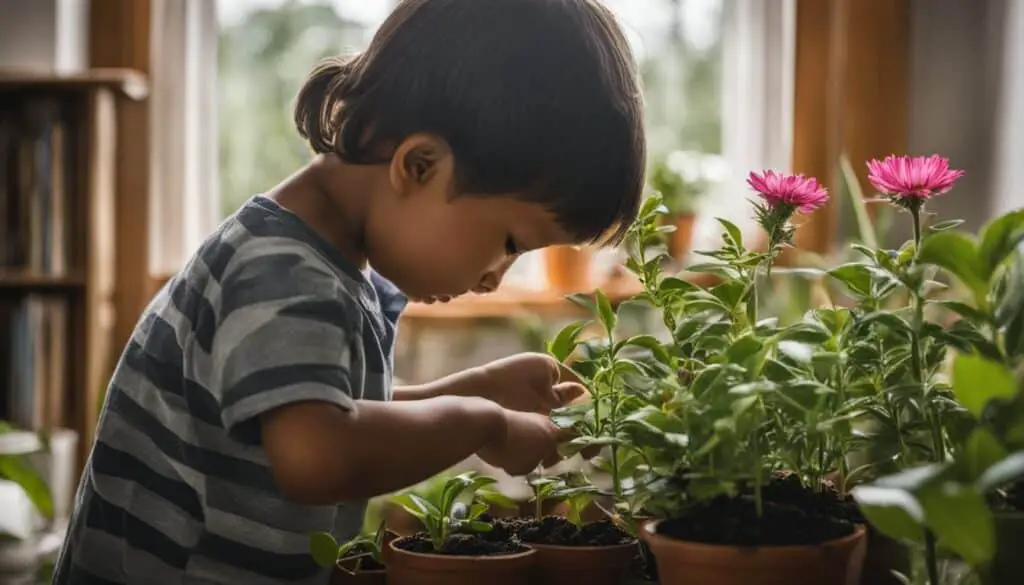Teaching Responsibility to Children: Effective Strategies
Teaching children responsibility is a crucial aspect of parenting. Instilling a sense of responsibility in children involves nurturing traits such as dependability, accountability, and being a contributing member of society. As parents, it is important to shift from a focus on obedience to ownership and responsibility. Finding the right balance between being too involved and allowing children to experience responsibility is key. Not only do parents play a dual role in nurturing and caring for their children, but they also need to set boundaries and hold them accountable.
High self-esteem has been linked to responsibility in children. Parents can help instill a sense of self-worth and capability in their children by providing messages of unconditional love and acknowledging their strengths and weaknesses. By encouraging responsible behavior and fostering independence, parents can guide their children towards becoming responsible individuals who are capable of making positive contributions to society.
Key Takeaways:
- Teaching responsibility to children is an essential goal for parents.
- Responsibility involves traits such as dependability, accountability, and being a contributing member of society.
- Parents should shift from a focus on obedience to ownership and responsibility.
- Nurturing high self-esteem in children is linked to responsibility.
- Encouraging responsible behavior and fostering independence are effective strategies.
The Importance of Instilling Responsibility
Instilling responsibility in children is crucial for fostering a sense of duty and cultivating responsible habits that will benefit them throughout their lives. When children understand the importance of taking ownership of tasks and completing them willingly and independently, they develop essential skills that contribute to their success in school and adulthood. It is important to differentiate between obedience and responsibility. While obedience involves following instructions and directions, responsibility goes beyond obedience by instilling a sense of ownership and accountability.
Responsible kids are more likely to be reliable and accountable individuals who contribute positively to their families and communities. By teaching children to be responsible, parents lay the foundation for their children’s future achievements and character development.
“Responsibility is not just about completing tasks; it is about building character and instilling values that will shape children into responsible adults.”
When children assume responsibility, they learn the value of their actions and the impact they have on others. This fosters empathy and consideration for those around them. Instilling a sense of duty also promotes self-reliance and independence. Responsible kids are more likely to develop problem-solving skills, take initiative, and make thoughtful decisions.
To illustrate the importance of instilling responsibility, let’s take a look at the differences between obedience and responsibility:
| Obedience | Responsibility |
|---|---|
| Follows instructions and directions | Takes ownership of tasks |
| Completes tasks as instructed | Completes tasks willingly and independently |
| Performs actions without considering the impact | Considers the impact of actions on self and others |
By instilling responsibility in children, parents equip them with essential life skills that will help them navigate challenges, build healthy relationships, and contribute positively to society. Cultivating responsible habits in kids is an investment in their future success and well-being.
Strategies for Teaching Responsibility
Teaching responsibility to children is essential for cultivating responsible behavior in young ones. As parents, there are several effective strategies you can utilize to promote responsibility in your children and help them understand the value of their actions.
One strategy is to establish the expectation that children clean up their own messes. By modeling this behavior and encouraging them to help with tasks and chores around the house, you are providing them with the opportunity to contribute to the common good. This not only develops a sense of responsibility but also instills the understanding that their actions have an impact on others.
Reinforcing positive behaviors is equally important. Providing specific feedback and acknowledging their efforts when they demonstrate responsible behavior can reinforce their understanding of its value. Positive reinforcement serves as an incentive and motivates children to continue practicing responsible habits.
To further develop responsibility, parents can teach children money management skills. This can be done by giving them an allowance and allowing them to make decisions about saving and spending. By giving them the freedom to handle their own finances, you are imparting a sense of responsibility and helping them understand the consequences of their choices.
Lastly, it is crucial to allow children to face the natural consequences of their actions and learn from their mistakes. While it may be tempting to shield them from failure or discomfort, these experiences contribute to their growth and development. Encourage them to take ownership of their actions and guide them through problem-solving. This helps them develop resilience, accountability, and a deeper understanding of responsible behavior.
Fostering Responsibility Through Household Chores
One practical way to teach responsibility is by involving children in household chores. Utilizing a chore chart or schedule can help establish clear expectations and provide children with a sense of responsibility and accomplishment. Here is an example of a chore chart:
| Chore | Assigned To |
|---|---|
| Washing dishes | Sarah |
| Taking out the trash | Josh |
| Dusting | Emily |
| Vacuuming | Ben |
By involving children in age-appropriate chores, they learn the importance of contributing to the household and develop a responsibility for their assigned tasks. This not only helps lighten the load for parents but also fosters independence and self-reliance in children.
Through these strategies, parents can promote responsibility in children and cultivate responsible behavior in young ones. By instilling these values early on, you are equipping your children with skills and traits that will serve them well throughout their lives.
The Role of Respect and Independence
Treating children with respect and care is essential for instilling a sense of ownership and responsibility. When children feel loved and valued, it helps develop a positive sense of self-worth, which is crucial for cultivating responsible behavior. As parents, we can reinforce responsible behavior by acknowledging and reinforcing positive actions. By providing specific feedback to our children, we can encourage and guide them towards making responsible choices.
Allowing children to contribute to household tasks and chores plays a vital role in fostering responsibility. When children actively participate in chores, they learn the value of their actions and develop a sense of responsibility. It instills in them a sense of ownership over their contributions to the family and cultivates a sense of responsibility towards their tasks. This not only teaches them the importance of being responsible for their own actions but also instills a greater understanding of the collective responsibility we all have in maintaining a cohesive and harmonious home environment.
Furthermore, promoting independence and self-reliance is another effective strategy in cultivating responsible behavior in young ones. By teaching children money management skills and allowing them to make their own decisions in a controlled environment, we empower them to take ownership of their choices. This fosters a sense of responsibility as they understand the consequences that come with their decisions. As parents, we play a pivotal role in striking a balance between providing support and allowing independence, enabling our children to develop a strong sense of responsibility and autonomy.

Learning from Mistakes and Facing Consequences
It is crucial to teach responsibility to kids by allowing them to face the consequences of their actions and learn from their mistakes. When children experience the natural outcomes of their behaviors, they gain a deeper understanding of the importance of follow-through and responsibility.
As parents, it is tempting to want to bail our children out of difficult situations. However, it is more beneficial to provide guidance and support for problem-solving. By doing so, children learn responsibility and accountability by taking ownership of their actions and facing the consequences that come with them.
“The only real mistake is the one from which we learn nothing.” – Henry Ford
In order to cultivate responsible habits in kids, it is essential to provide clear and simple instructions. This clarity helps children understand expectations and gives them the opportunity to learn new behaviors and develop a strong sense of responsibility.
Positive reinforcement is another effective tool for teaching responsibility to kids. By praising and acknowledging their efforts when they display responsible behavior, children are encouraged to continue practicing and cultivating responsible habits.
Key Points:
- Allowing children to face consequences teaches them responsibility
- Provide guidance and support for problem-solving
- Clear instructions and positive reinforcement help develop responsible habits

Conclusion
Instilling responsibility in children is a critical aspect of parenting. By teaching children to be accountable, independent, and reliable, parents can set them up for success in life. Strategies such as teaching money management skills, allowing children to contribute to household tasks, and providing support while also promoting independence can help foster responsible behavior.
Allowing children to face the consequences of their actions and learn from their mistakes is crucial in developing resilience and accountability. By providing a nurturing and respectful environment, parents can instill a sense of ownership and responsibility in their children, creating a foundation for responsible habits and behaviors.
Raising responsible kids is not an easy task, but with consistent effort and the implementation of effective strategies, parents can help their children develop into responsible, independent, and reliable individuals who contribute positively to society.
FAQ
What is responsibility and why is it important to teach children?
Responsibility encompasses traits such as dependability, keeping commitments, being accountable, and being a contributing member of society. Teaching responsibility to children is important as it sets them up for success both in school and in adulthood.
How is responsibility different from obedience?
While obedience involves following instructions and directions, responsibility involves taking ownership of a task and completing it willingly and independently.
What are some effective strategies for teaching responsibility to children?
Strategies for teaching responsibility include raising children with the expectation that they clean up their own messes, allowing them to contribute to household tasks, teaching money management skills, and allowing them to face the consequences of their actions.
How can respect and independence contribute to instilling responsibility in children?
Treating children with respect and care is essential in developing a positive sense of self-worth and promoting responsible behavior. Allowing children to contribute to household tasks and chores helps them understand the value of their actions and fosters a sense of responsibility.
Why is it important for children to learn from their mistakes and face consequences?
By experiencing the natural consequences of their behaviors, children learn the importance of follow-through and responsibility. Allowing children to face the consequences of their actions helps them develop resilience and accountability.
What is the overall importance of instilling a sense of ownership and responsibility in children?
Instilling responsibility in children is crucial for their success both in school and in adulthood. By teaching children to be accountable, independent, and reliable, parents can set them up for success in life.





